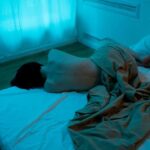Have you ever realized just how caffeine and alcohol can impact your sleep? Many women over 30 face persistent issues like fatigue and insomnia, often without understanding the root cause. As our bodies change, these common substances can unveil hidden effects that disrupt our precious sleep, leaving us feeling drained and irritable. In this article, we’ll explore the intricate relationship between caffeine, alcohol, and their effects on women’s sleep.
Understanding Caffeine: More Than Just a Pick-Me-Up
Caffeine is more than just a simple stimulant; it’s a common part of our daily routines. For many women, especially those above 30, it becomes a necessary ally to combat fatigue and enhance productivity. However, its effects extend beyond mere alertness. While you may rely on that morning coffee or afternoon tea to make it through your busy day, it’s essential to understand how caffeine interacts with your body, particularly concerning sleep.
Caffeine works by blocking adenosine, a neurotransmitter that promotes sleep. This can be beneficial during the day, but if you consume it too late, it can significantly hinder your ability to fall asleep at night. Studies suggest that women metabolize caffeine differently than men, sometimes leading to more pronounced effects on sleep patterns. Getting caught up in the hustle of daily responsibilities, many women overlook how those extra cups of coffee or late-night energy drinks may be silently sabotaging their rest.
How Alcohol Affects Restful Sleep
Alcohol is often seen as a tool for winding down after a long day. While it may seem to help you fall asleep quickly, it actually affects sleep quality. For women, the impacts can be particularly detrimental. While alcohol may initially induce feelings of relaxation, it can disrupt the sleep cycle, especially during the second half of the night.
Research indicates that alcohol consumption before bed can reduce the overall amount of REM sleep, which is crucial for emotional and cognitive restoration. Women, who may already juggle various stressors, might find this disruption affects their mood, leading to increased feelings of anxiety and fatigue. Understanding this relationship can empower you to make more informed choices about your evening routine.
The Hidden Impacts of Late-Night Caffeine Consumption
Late-night caffeine consumption is a common trap. Perhaps you’re working on a deadline, or maybe you’re entertaining guests, and that cup of coffee feels like a necessary boost. However, caffeine consumed in the evening can linger in your system and keep you alert when you’d rather be relaxing. This can create a cycle of sleep deprivation and reliance on caffeine that many women experience.
It’s important to note that caffeine’s half-life can be up to six hours, meaning if you have a cup at 5 PM, you may still have half of that caffeine in your system at 11 PM. The result is disrupted sleep and waking up feeling less than refreshed. It might take some conscious effort, but shifting your caffeine consumption earlier in the day can contribute to more restful nights.
Unmasking Alcohol’s Role in Sleep Disruption
Understanding the role of alcohol in your nightly routine reveals insights that can aid in improving your overall well-being. Alcohol may initially help you relax, but as you drift off, it can lead to fragmented sleep. Many women experience this disruption without realizing that their evening glass of wine could be to blame.
Some may wake up in the middle of the night, only to find it challenging to return to restful sleep. This exhausted state can intensify feelings of anxiety and ache, making it essential to assess how alcohol fits into your evening habits. Exploring alternatives or setting a limit can significantly benefit your sleep quality, revitalizing your overall day-to-day experience.
Caffeine, Stress, and Hormonal Balance
The connection between caffeine, stress, and hormonal balance is critical for women, especially those in their 30s and beyond. Stress can elevate cortisol levels, which can, in turn, lead to increased cravings for caffeine as a way to keep energy levels high. However, when caffeine intake becomes excessive, it can exacerbate stress and impact hormonal health, leading to conditions like anxiety and sleep disturbances.
For women facing hormonal fluctuations, perhaps due to perimenopause or other factors, caffeine might fuel cycles of stress and fatigue. Taking the time to assess your caffeine relationship could foster better hormonal equilibrium. Exploring other methods to manage stress can serve as a healthier path to maintaining energy without compromising sleep quality.
Practical Tips to Reduce Caffeine and Alcohol Intake
Making small, practical changes can help reduce your caffeine and alcohol intake, contributing to improved sleep and overall well-being. Here are some tips to consider:
- Gradually Cut Back: If you’re used to multiple cups of coffee a day, start by reducing the amount slowly. Swap one cup for herbal tea or decaf.
- Set a Cut-off Time: Aim to finish your last caffeine drink by mid-afternoon to allow your body ample time to wind down before bed.
- Explore Alcohol Alternatives: Try non-alcoholic beverages that promote relaxation without the sleep disruption.
- Stay Hydrated: Often, we reach for caffeine or alcohol when we’re merely dehydrated. Ensure you’re drinking enough water throughout the day.
Exploring Natural Alternatives for Better Sleep
For many women, looking for alternatives to caffeine and alcohol can open doors to enhanced relaxation and better sleep. Many natural options can help promote restful nights without the crash that synthetic options often create. Here are some alternatives you can explore:
- Chamomile Tea: Known for its calming effects, chamomile can be a soothing way to wind down your day.
- Valerian Root: This herbal supplement has been used for centuries to promote sleep quality and can be a gentle natural alternative.
- Aromatherapy: Scents like lavender can reduce anxiety and promote relaxation. Consider incorporating essential oils into your bedtime routine.
- Mindfulness Practices: Engaging in yoga, meditation, or deep breathing can help transition your mind away from daily stressors.
Listening to Your Body: Finding Your Balance
Each woman’s body is unique, and listening to its signals is crucial when finding your balance with caffeine and alcohol. Take time to reflect on how your body responds to these substances. Journaling your experiences can reveal patterns that may be affecting your sleep and overall health.
It’s okay to indulge occasionally, but becoming aware of how often and why you do can empower your choices. Create a self-care routine that prioritizes relaxation, focusing on what truly benefits you.
The Importance of Sleep Hygiene for Women
Sleep hygiene encompasses habits and practices that promote better sleep quality. Women often juggle busy schedules, making it easy to overlook the importance of establishing a consistent nighttime routine.
Consider creating a calming environment: keep your bedroom cool, dark, and quiet. Limit screen time an hour before bed and incorporate relaxing activities into your evening, such as reading or gentle stretches. Investing in your sleep hygiene can lead to a more rejuvenating experience each night.
Empower Your Sleep Journey: Small Changes, Big Impact
It’s entirely possible to improve your sleep by making gradual changes. Many women have discovered the transformative effects of cutting back on caffeine and alcohol. Taking small steps can lead to significant changes that improve mood, energy, and overall wellness.
If you’re curious about how other women are finding relief from sleepless nights without heavy medications, see here how many women are solving this without heavy medications.
Remember, every small change counts. It starts with you. Take that first step towards better sleep tonight.







